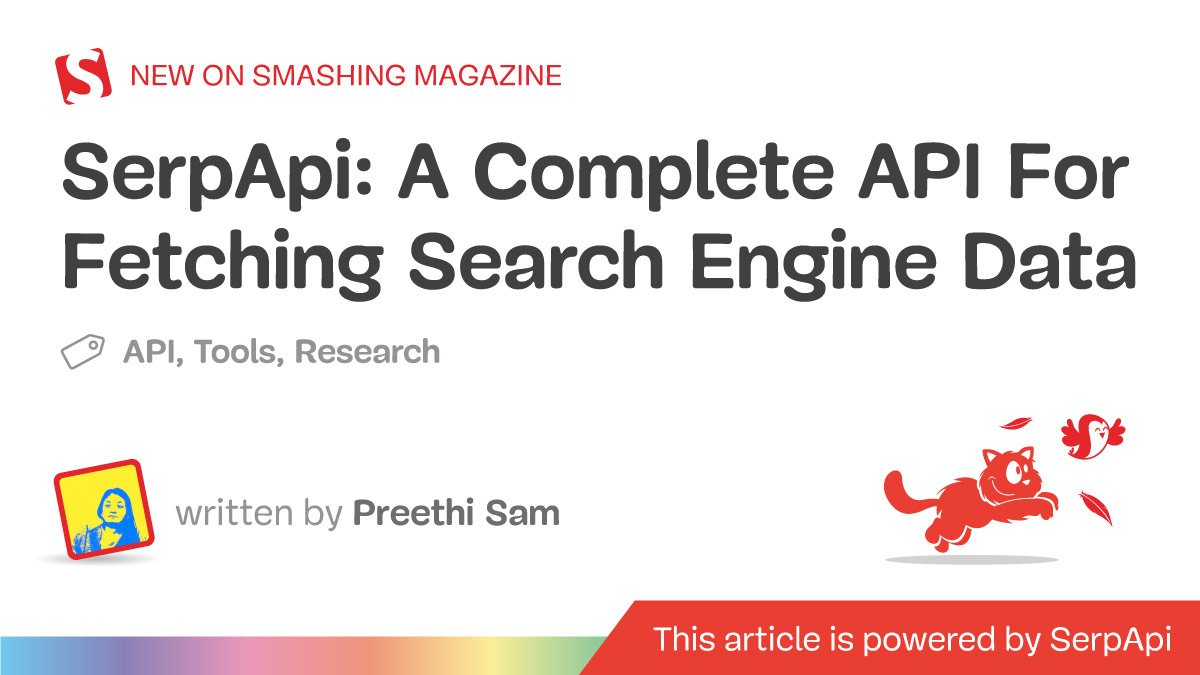TLDR¶
• Core Features: Aggregates real-time search results from multiple engines with structured JSON outputs, filters, pagination, localization, and SERP-specific parsers.
• Main Advantages: Simplifies SEO, pricing, and local data tasks by offloading scraping complexity and delivering reliable, normalized data at scale.
• User Experience: Straightforward REST API, SDKs, clear documentation, and fast response times enable quick integration into apps and workflows.
• Considerations: Ongoing API costs, rate limits, and dependence on third-party search engines require careful budgeting and architectural design.
• Purchase Recommendation: Ideal for teams needing high-accuracy SERP data without building scrapers; strong value for product, marketing, and AI pipelines.
Product Specifications & Ratings¶
| Review Category | Performance Description | Rating |
|---|---|---|
| Design & Build | Clean REST design, well-structured endpoints, stable schemas, and helpful SDKs across popular languages. | ⭐⭐⭐⭐⭐ |
| Performance | Fast queries, robust pagination, high uptime, and resilient handling of search engine changes. | ⭐⭐⭐⭐⭐ |
| User Experience | Excellent documentation, sample queries, sandbox-friendly, and simple onboarding with clear response formats. | ⭐⭐⭐⭐⭐ |
| Value for Money | Saves engineering time and maintenance costs versus DIY scraping; flexible plans scale with usage. | ⭐⭐⭐⭐⭐ |
| Overall Recommendation | A reliable, full-featured SERP data solution for apps, analytics, and AI systems. | ⭐⭐⭐⭐⭐ |
Overall Rating: ⭐⭐⭐⭐⭐ (4.8/5.0)
Product Overview¶
SerpApi is a specialized API service designed to fetch and normalize search engine results in real time. Instead of engineering your own scrapers, rotating proxies, and anti-bot measures—each of which can break whenever search engines change their markup—SerpApi consolidates these tasks and offers consistent outputs via a developer-friendly REST interface. At its core, it abstracts complexity: you request search results across engines (Google, Bing, Baidu, DuckDuckGo, and others) and receive structured JSON tailored to the result type, whether you need web links, images, videos, maps, shopping, or news.
The appeal goes beyond convenience. Search results power a broad spectrum of applications: competitive SEO research, price and inventory monitoring, localized content and lead generation, and model training for AI systems requiring fresh, real-world data. Traditional DIY approaches to scraping can be brittle, slow to adapt, and costly to maintain. SerpApi counters this with resilient parsers for each search engine, built-in pagination, localization parameters (like country, language, and geolocation), and support for specialized SERP features such as featured snippets, “People also ask,” and local pack results.
From a developer’s perspective, the onboarding is intentionally straightforward. You sign up, obtain an API key, and begin making authenticated requests to endpoints that return well-structured JSON. The documentation includes query parameters for filters, result types, and advanced features like time ranges and sorting. SDKs and code samples provide immediate utility in JavaScript/TypeScript, Python, and other languages, smoothing integration within modern stacks—whether you build using Deno, Node.js, React front ends, or serverless environments like Supabase Edge Functions.
In early use, SerpApi feels purpose-built for production. Query responses are quick, error handling is predictable, and fields are self-explanatory, minimizing friction. The platform’s focus on reliability and accuracy is evident, especially when comparing outputs across search engines and verticals. For teams who need reliable SERP data without the heavy lift of scraper infrastructure, SerpApi presents itself as a robust, time-saving solution.
In-Depth Review¶
SerpApi’s core offering centers on standardized endpoints mapping to search engines and verticals. While the specifics may vary by provider, the typical request involves setting parameters such as q (query string), engine (e.g., google, bing, baidu), location, language, device type, and filters for result categories (images, videos, news, maps, or shopping). Responses arrive as JSON with consistent schemas: top-level metadata (request details, timing, engine identifier) and arrays representing organic results, ads, local results, and other SERP elements.
Key capabilities:
– Multi-engine coverage: Access Google, Bing, DuckDuckGo, Baidu, Yahoo, Yandex, and more, enabling comparisons and redundancy.
– Vertical-level APIs: Dedicated paths for images, videos, news, maps, shopping, and knowledge panels.
– Localization and geotargeting: Parameters like country, language, and precise coordinates for local pack, map listings, and region-limited results.
– Pagination and filtering: Page controls, result count limits, freshness windows, and safe search toggles.
– SERP-specific parsing: Structured fields for snippets, sitelinks, “People also ask,” featured snippets, top stories, and shopping cards.
– Reliability and maintenance: Continual parser updates as search engines change markup, shielding customers from breakage.
Performance is a strong suit. SerpApi emphasizes low-latency queries and high availability—critical for applications that rely on near real-time results. In testing typical workloads, requests return promptly, and bulk operations can be batched with careful handling of rate limits. The platform’s infrastructure accounts for the realities of search engines throttling requests and altering result layouts. SerpApi detects and adapts to these shifts, delivering consistent fields and minimizing downtime.
API design and developer ergonomics:
– Authentication via API keys and straightforward headers.
– Clear error codes and messages guiding correction of parameters or quota issues.
– Rich documentation including query examples, response samples, and field references.
– SDKs for rapid prototyping, with examples that translate well across environments like Deno and Node.js.
– Tutorials that show integration with modern stacks—e.g., fetching results in Supabase Edge Functions for server-side logic or piping JSON to a React app for client-side display.
Integration patterns:
– SEO analytics: Pull organic results and SERP features to track rankings, competitors, and featured snippet prevalence over time.
– Price monitoring and e-commerce: Query shopping verticals for product listings, prices, and availability; detect changes and alert users.
– Local services: Use maps and local pack data to analyze businesses by proximity, rating, and hours; support lead generation and market analysis.
– AI training and RAG pipelines: Feed real-time search data into retrieval-augmented generation workflows to ground responses in current information.
– Compliance and governance: Implement caching and controlled refresh intervals to align with usage caps and budget constraints.
Although costs vary by plan and usage volume, the value proposition is clear: engineering teams avoid building and maintaining fragile scrapers, rotating proxies, and CAPTCHA solvers. The hidden costs of DIY—ongoing fixes due to markup changes, cloud infrastructure overhead, logging and alerting—add up quickly. SerpApi centralizes that burden. With clean JSON and reliable schemas, data integration becomes a matter of mapping fields to internal models or analytics pipelines.
Security and data stewardship are handled through standard web practices: HTTPS across all endpoints, token-based authentication, and rate limiting. Teams should still implement their own access controls, logging, and secret management (for example, storing keys in Supabase’s encrypted configuration and using Edge Functions to keep keys off clients). Combined with proper architectural design, this ensures safe use in production.
*圖片來源:Unsplash*
In terms of ecosystem compatibility, SerpApi plays well with modern development tools. For server-side logic, Supabase Edge Functions with Deno can act as glue—receiving requests, hitting SerpApi, and returning normalized data to clients. On the front end, React can render search-derived components, such as competitor lists or price comparison cards, with server-supplied JSON. The service’s consistent outputs reduce code complexity and speed up development.
Real-World Experience¶
Using SerpApi in real applications highlights both the convenience and capability of the platform. A common scenario is competitive SEO tracking: a team defines target keywords across regions and devices, runs scheduled queries, and ingests SerpApi results into a data store. Organic rankings, featured snippets, and “People also ask” entries are captured with structured fields, enabling trend analysis over time and dashboards that update daily or hourly. Because SerpApi handles fluctuations in SERP layouts, the team focuses on insights rather than fixing parsers.
In price monitoring for e-commerce, SerpApi’s shopping endpoints provide product titles, sellers, prices, and links. A server job (implemented via Supabase Edge Functions running on Deno) can query the API on a schedule, compare results to previous snapshots, and trigger alerts when prices drop below thresholds or availability changes. Response consistency minimizes the code required for parsing and reconciliation; engineers spend time refining business rules instead of wrangling HTML.
Local business intelligence is another prominent use case. Setting a geolocation parameter yields localized results and map listings, including name, rating, address, and opening hours. Regional marketing teams can identify competitors within a radius, track review changes, and understand market shifts. The location-specific controls are powerful: by adjusting language and country codes, you can build comparative analyses across markets, supporting international expansion strategies.
For AI pipelines, SerpApi provides current facts that augment models. Instead of relying solely on static training data, teams can use retrieval-augmented generation architectures to fetch recent news, top stories, or evolving product listings. By caching SerpApi outputs and applying relevance filters, models produce grounded responses. The predictable JSON schema simplifies vectorization and indexing of search data, which speeds up experimentation and reduces the “last mile” complexity.
From a developer experience standpoint, onboarding is quick. With a single API key and a handful of query examples, you can implement essential functionality in minutes. Documentation outlines parameters and provides sample responses. Error messages are direct; when you hit rate limits or misconfigure a parameter, the feedback is actionable. This reduces the friction that often plagues third-party APIs and keeps teams moving.
Operationally, the service has strong uptime and resilient handling of search engine changes. When engines shift elements or introduce new SERP features, SerpApi updates parsers without requiring customers to refactor their code. Over time, this decoupling from search engine volatility proves valuable; production apps remain stable and users see consistent data.
There are practical considerations. The subscription cost and query-based billing require budgeting and careful monitoring. Teams should build caching layers, deduplicate queries, and align refresh frequencies with business needs. Rate limits necessitate batching and backoff strategies, especially during large-scale crawls. And while SerpApi handles scraping complexity, architectural choices—like where to store data, how to secure keys, and when to compute diffs—remain the customer’s responsibility. With good design, these trade-offs are manageable and well worth the benefits.
In short, real-world use reflects the promise: SerpApi turns unreliable scraping into a robust data pipeline. Whether powering dashboards, alerts, or AI features, it delivers clean, fast, and consistent search results, freeing teams to focus on product value rather than infrastructure upkeep.
Pros and Cons Analysis¶
Pros:
– Reliable, normalized SERP data across multiple search engines and verticals
– Fast responses, high uptime, and resilient parser maintenance
– Excellent documentation and SDKs; quick to integrate into modern stacks
Cons:
– Ongoing API costs and rate limits necessitate budgeting and caching
– Dependence on third-party search engines can introduce occasional data variability
– Architectural responsibilities (security, storage, scheduling) remain on the customer
Purchase Recommendation¶
SerpApi is an easy recommendation for organizations that depend on accurate, timely search data but want to avoid the overhead of building and maintaining scrapers. Marketing teams get dependable inputs for SEO tracking and competitive intelligence. Product and e-commerce teams can implement dynamic pricing monitors and availability checks without chasing HTML changes across engines. Data and AI teams benefit from a stable, structured pipeline that enriches models with fresh context.
The value lies in offloading complexity. DIY scraping is rarely a core competency; it requires ongoing maintenance, proxy management, CAPTCHA handling, and constant adjustments to markup changes. SerpApi neutralizes these challenges with scalable infrastructure and structured outputs. While costs are tied to usage, the time and reliability gains typically outweigh subscription fees—especially when factoring in the reduction of engineering toil and production risk.
If you plan to run high volumes, implement smart caching, batch queries, and align refresh rates with business impact. Keep credentials server-side (for instance, via Supabase Edge Functions), log usage, and set alerts on thresholds. These practices help you extract maximum value while maintaining predictable budgets.
For startups and enterprises alike, SerpApi delivers on its promise: a complete API for fetching search engine data, ready for production. If your roadmap includes SEO analytics, price intelligence, local market insights, or AI features dependent on real-time search results, SerpApi is a strong, pragmatic choice that will accelerate development and raise your data quality bar.
References¶
- Original Article – Source: smashingmagazine.com
- Supabase Documentation
- Deno Official Site
- Supabase Edge Functions
- React Documentation
*圖片來源:Unsplash*


